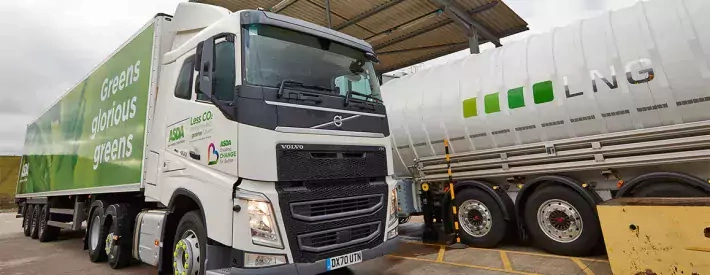Heavy commercial vehicles’ quiet revolution

The world’s gaze is focused on passenger vehicles and the shift to electric, but the commercial world is facing a revolution of its own
The industry’s changing. Due to go down the diesel-dominated production line at DAF's assembly plant in Lancashire in May, is a truck with a difference.
Designed for delivery work in busy city centres, the battery-powered zero-emission LF Electric 19-tonner boasts a claimed range of 175 miles between recharges. A fast-charger will replenish its lithium iron phosphate battery pack from flat to full in as little as two hours, according to the manufacturer.
DAF has already developed the CF Electric tractor unit along with the 27-tonne CF Electric 6x2 rigid. Complete with a rear-steer axle to aid manoeuvrability, it could also be used as a platform for bin wagons.
Change is coming
Other truck manufacturers are embracing battery-electric technology; and the fruits of their endeavours are gradually appearing on Britain's streets.
DHL Supply Chain has started operating a Volvo FL Electric 16-tonner on last-mile delivery work in central London. With a claimed range of 120 miles, after recharging overnight at DHL's Purfleet depot, it can carry a dozen pallets stacked with goods.
And while battery electric heavy goods vehicles might struggle out on the open road, they do have advantages in the city scenarios according to DHL Supply Chain Managing Director of Network Logistics and Transport, Ian Clough.
“Fuel used when a diesel engine is idling - a major factor in London - heavily impacts its efficiency. That's something you don't suffer from with an electric truck,” he says.
Another logistics firm is also shifting to electric. Over 10% of DPD's UK delivery fleet is electric. The 700-strong battery-powered line-up includes Fuso eCanter 7.5-tonne trucks as well as Nissan e-NV200 and MAN eTGE vans. And it isn’t just delivering parcels where electric is gaining a foothold.
Gas supplier Calor has been using a Fuso eCanter 7.5-tonner to distribute bottled butane and propane to customers in central London. At around 60 miles, eCanter's range is modest; but Calor's truck typically only covers 30 miles daily.
Long-haul solutions
Range looms large if a truck is on long-haul work. Even DAF's LF Electric 19-tonner will not be able to get from London to Newcastle upon Tyne (280 miles) without being plugged in somewhere along the way.
Why not equip it with more batteries? Do that, and the extra weight will reduce its ability to carry heavy cargo; and payload capacity is already an issue with some electric models.
Hydrogen fuel cells could prove to be the answer - they emit nothing more harmful than water vapour and can deliver a range of up to 500 miles on a single tank of fuel. Truck makers are working on models powered by hydrogen, and initiatives include a major joint venture between Volvo and Daimler. But it’s a technology that’s taking time to grow so it could be a few years before we see them regularly trundling up and down the motorway network in significant numbers.
In the meantime, many fleets eager to send loads from one end of the country to the other while minimising their impact on the environment are switching to gas.
Leading the charge is Asda, which has just taken delivery of 202 Volvo FH liquefied natural gas tractor units which can run on renewable biomethane. They join 51 already in service with the supermarket giant.
The retailer has ambitions to switch its core fleet of 1,000 units from diesel to gas by 2024 after in-house trials showed that operating on biomethane reduced CO2 emissions by over 80%.
The Volvos are comfortably covering up to 380 miles, and can arrive back at base with the gas tank still one-quarter full. Refuelling is provided by Air Liquide and Gasrec via a mixture of on-site and open-access facilities.
"Our drivers have found that running on gas is smoother and quieter than running on diesel," says Asda senior manager of national fleets, Sean Clifton. "What's more, there's none of the range anxiety you can get with some of the other alternative fuel options”.
Over the next decade there’s likely to be a greater deal of debate about the shift to electric in passenger vehicles and light commercial vehicles. But it’s important to remember there’s a revolution happening in heavy vehicles too – it’s just being shouted about less.




